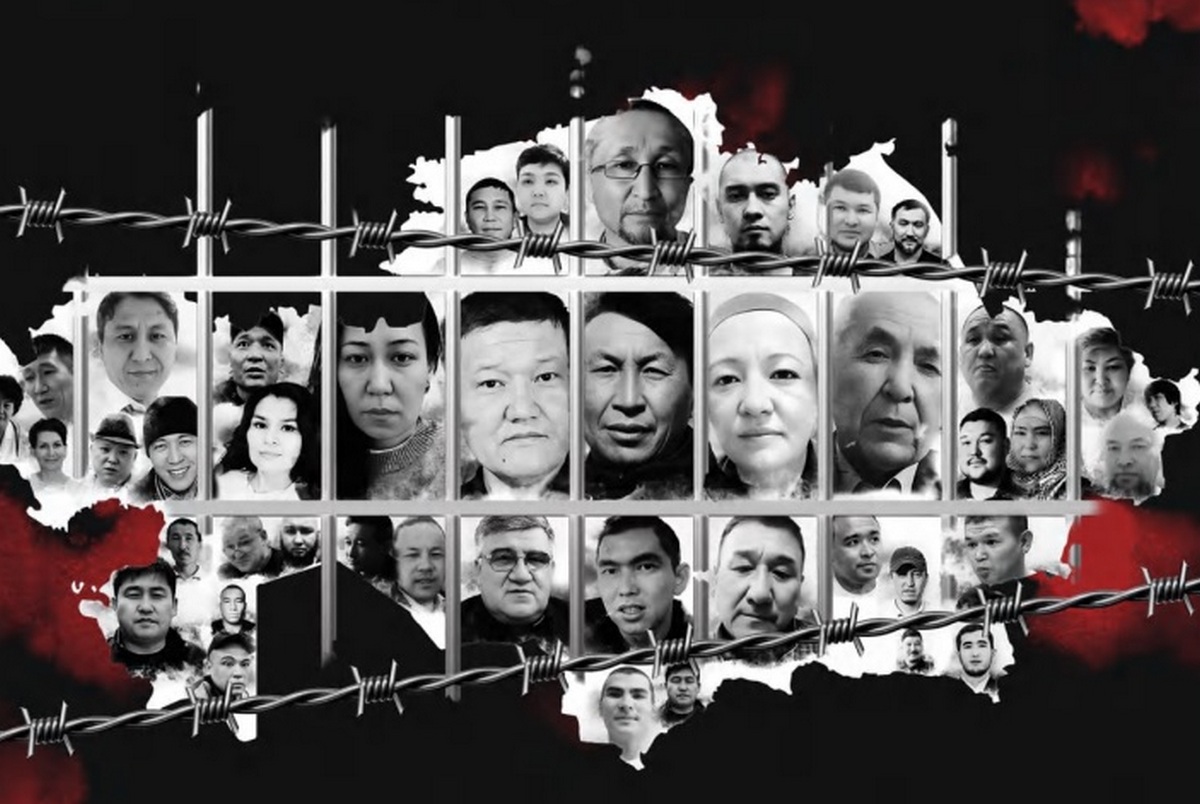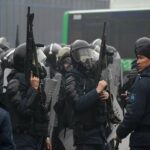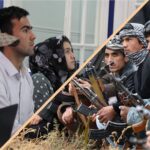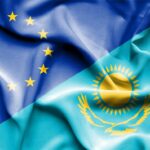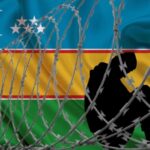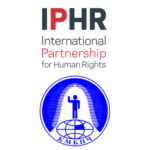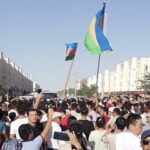This report provides an overview of developments impacting freedom of expression, association and peaceful assembly in Kazakhstan from July to December 2023. It has been prepared by International Partnership for Human Rights (IPHR) and Kazakhstan International Bureau for Human Rights and Rule of Law (KIBHR) in cooperation with the CIVICUS Monitor.
During the reporting period, concerns persisted regarding the lack of accountability for torture and other serious human rights violations perpetrated in connection with the “Bloody January” events of 2022, when authorities forcefully suppressed mass protests and unrest. Following a closed trial, a verdict was issued in a case in which security service officers were accused of abducting and torturing more than 50 people, one of whom died. While ten officers were convicted, their sentences were relatively lenient, ranging from suspended prison terms to five years in prison. One officer believed to have been involved in organising the abuse was acquitted. Another closed-door trial ended with the acquittal of a soldier charged over the death of a four-year-old girl whose family’s car came under fire by the army during the January events. This resulted in a total lack of accountability for the girl’s killing, an outcome which was exacerbated by the court’s ruling that her father should be prosecuted for allegedly endangering her, thereby shifting blame onto him.
Concerns also persisted about the fairness of legal proceedings against individuals charged with involvement in unlawful acts during the January 2022 events. For example, an appeal court upheld the conviction of civil society activists Aigerim Tleuzhan and Kalas Nurpeisov as the purported organisers of the seizure of Almaty airport, although the prosecution failed to substantiate these charges and prove their guilt. The circumstances of the case suggest that the two activists were unfairly designated as scapegoats for the violent events at the airport, with the real perpetrators – whom the authorities claimed were well-organised “militants” at the time – not having been identified.
Political opposition groups continued to face difficulties with obtaining state registration and their members were harassed by authorities. The Alga Kazakhstan! opposition party, for instance, received new rejections to its applications for registration because the list of supporters it provided allegedly did not comply with legal requirements. As of December 2023, the party had been denied registration 21 times since spring 2022. Party leader Marat Zhylanbaev received a seven-year prison sentence on extremism charges, widely seen as retaliation for his opposition activities. IPHR and KIBHR issued a joint statement condemning Zhylanbaev’s conviction, highlighting it as a stark example of the authorities’ lack of commitment to real democratic reform, and called for his immediate and unconditional release. Other activists associated with Alga Kazakhstan! were detained and penalised for expressing support for Zhylanbaev.
In November 2023, Parliament gave its initial approval to a draft media law. Although the draft law has been revised and improved since it was first introduced in early 2023, concerns persist. An OSCE expert review concluded that a number of its provisions are inconsistent with international standards on freedom of expression. In September 2023, other new legislation introduced a broadly worded provision to the Code of Administrative Offences penalising the dissemination of “false” information. It compounded an existing provision in the Criminal Code banning “knowingly” spreading “false” information, which has been frequently used against government critics. Thus, the introduction of the new provision raised concerns that authorities would step up efforts to curb free speech in the name of fighting disinformation. During the reporting period, local courts had already used the new provision to issue fines on several occasions, while others posting information critical of the authorities were convicted on criminal charges of spreading “false” information. There were also new cases in which journalists covering sensitive issues faced detentions and convictions.
Authorities persistently violated the right to freedom of peaceful assembly by arbitrarily rejecting requests to organise peaceful protests and detaining and penalising activists before, during and after peaceful assemblies held without pre-authorisation. Activists were also held accountable for actions not constituting organised protests. For instance, two ecological activists were detained on their way to a public meeting with Almaty’s mayor, and several civil society activists were convicted for standing outside Almaty City Court where an appeal hearing was expected to take place in the case related to the seizure of Almaty airport (the hearing was eventually postponed).
IPHR and KIBHR, along with other NGOs, criticised the publication of a list of foreign-funded groups and activists on a government site in September 2023, viewing it as an attempt to stigmatise and discredit those featured, who included well-known human rights organisations and defenders. The public registry served a similar purpose to “foreign agent” laws initiated in other countries, raising concerns that it might be followed by additional measures to control, stigmatise and discriminate against foreign-funded groups in Kazakhstan.
These and other issues are covered in more detail below.
PEACEFUL ASSEMBLY
FALLOUT FROM THE “BLOODY JANUARY” PROTESTS
There were ongoing concerns about the authorities’ failure to carry out impartial, thorough and transparent investigations into allegations of serious human rights violations committed by law enforcement and security officials in connection with the January 2022 protests and to bring those responsible to justice. While the authorities received several hundred complaints of abusive treatment related to the January events, to date only around 30 law enforcement and security officials have been convicted on such charges.
In the following case, the trial was held behind closed doors, which reinforced concerns about its fairness and impartiality:
- On 8th December 2023, an Almaty district court issued its verdict in a case of 11 officers from the State Committee for National Security (known as KGB) accused of abducting people in the street and torturing them in an attempt to force them to “confess” to acts of violence during the January 2022 protests. A total of 54 people were recognised as victims in the case, one of whom died as a result of torture. The court sentenced seven KGB officers to prison terms of three to five years, and three others to three year suspended prison terms on charges of torture and abuse of power (under articles 146 and 362 of the Criminal Code). One officer was acquitted. When speaking to the Kazakh service of Radio Free Europe/Radio Liberty (RFE/RL), Gulnara Zhuaspaeva – one of the lawyers representing the victims – expressed regret that the sentences did not correspond to the severity of the charges, saying that those on trial ‘’beat, punched and kicked’’ victims in a “Gestapo room”. She was particularly concerned that the person believed to have played a major role in organising the abusive treatment was acquitted and said that the victims would appeal the ruling.
The following trial concerning the killing of a small girl during the “Bloody January” protests was also held behind closed doors:
- On 15th November 2023, the trial ended in the case of four-year-old Aikorkem Meldekhan who died when her family’s car came under fire in Almaty during the January 2022 events. Although a forensic investigation concluded that the bullets that hit the car in which she was travelling originated from firearms used by the military, only one soldier was prosecuted – on charges of abuse of power (under Criminal Code article 451). When issuing its verdict, the court acquitted him of these charges because of the alleged lack of elements of a crime, resulting in no one being held accountable for the girl’s death. Aikorkem’s family had demanded that the case be requalified as a case of murder and that all those involved in the shooting be criminally charged. While acquitting the soldier, the court ruled that Aikorkem’s father should be held responsible for allegedly endangering the girl (under Criminal Code article 119), thereby shifting blame onto him. At the time of writing, it was not clear whether the girl’s father had officially been charged under this provision. Aikorkem’s family was shocked by the verdict and filed an appeal against it. The girl’s father had previously reported being pressured by security officials to refrain from talking to journalists or making public statements about his family’s ordeal.
There are also serious concerns about the fairness of legal proceedings initiated against individuals charged with serious crimes related to the January events, including civil society activists, such as in this case:
- As covered in the previous update, in July 2023, an Almaty court handed civil society activists Aigerim Tleuzhan and Kalas Nurpeisov prison sentences of four and eight years, respectively, because of their purported involvement in the seizure of Almaty airport on 5th January 2022. The two activists were found guilty of organising mass riots accompanied by violent acts at the airport, with Nurpeisov additionally being convicted of robbery and assaults on property. Three other activists received eight-year prison sentences on charges of participating in riots and assaults on property. At an online hearing held on 10th November 2023, an appeal court upheld the activists’ sentences unchanged and also ordered them to pay significant financial compensation to the airport and several companies operating there for damage they had allegedly inflicted.
Tleuzhan and Nurpeisov admitted being at the airport on 5th January 2022, saying they briefly went there to see what was going on after hearing rumours about the arrival of Russian troops (such troops eventually arrived on 6th January 2022 in response to President Tokayev’s request for support from the Collective Security Treaty Organisation). However, they categorically denied the charges against them, calling them absurd and politically motivated. According to KIBHR’s monitoring, the prosecution failed to back up the charges against the two activists, largely relying on testimonies of witnesses, many of whom either did not identify the defendants in court or recanted their statements, saying they had been made under pressure. The activists’ lawyers told Radio Azattyk that the court ignored most of the evidence supporting the defendants’ innocence, and that video material presented during the trial clearly showed that they did not commit the serious crimes of which they were convicted.
The circumstances of the case and the flawed nature of the legal proceedings suggest that the two activists were unfairly designated as scapegoats for the events at Almaty airport, diverting attention from the real organisers who have not been identified. At the time, the authorities claimed that well-organised ‘’militants’’ had seized the airport, while publicly released video footage showed masked men, some of them with sticks, walking and shouting at the airport.
Human rights defenders have voiced serious concerns about the conviction of activists in relation to the Almaty airport seizure and consider Tleuzhan and Nurpeisov political prisoners. Amnesty International called for the immediate and unconditional release of Tleuzhan, Nurpeisov and their co-defendants, concluding that they were convicted after a trial which was ‘’marred by violations of international fair trial standards’’ and ‘’failed to demonstrate their guilt’’.
ONGOING VIOLATIONS OF FREEDOM OF ASSEMBLY
Kazakhstani authorities continued to systematically violate the right to freedom of peaceful assembly, arbitrarily rejecting requests to organise peaceful assemblies and detaining and penalising those involved in peaceful protests held without pre-approval. Under Kazakhstan’s Code of Administrative Offences (article 488), the organisation and participation in non-sanctioned assemblies are punishable by fines and short-term detention.
In addition to detaining protesters gathering for peaceful assemblies, authorities carried out ‘’preventive’’ detentions of activists prior to planned protests and ‘’delayed’’ detentions several days or weeks after unsanctioned protests. Authorities often applied a broad interpretation of what an assembly constitutes and also detained activists because of their participation in gatherings that were not organised protests, such as, for example, a public meeting with Almaty’s mayor, gatherings outside courts where cases against activists were being considered, and a running event in support of imprisoned opposition party leader Marat Zhylanbaev (see more below).
The following examples illustrate violations of the right to freedom of peaceful assembly seen during the reporting period:
- According to media reports, on 1st August 2023, a group of people, whose relatives died during the ‘’Bloody’’ January 2022 events, gathered for a peaceful protest outside the mayor’s office in the city of Shymkent to demand that the authorities identify and bring to justice those guilty of killing their relatives. When the protest had already been under way for several hours, police detained the participants and took them to a local police station. Most of them were subsequently released without charge, but two protesters were sentenced to five- and 10- days’ detention, respectively, for participating in an unsanctioned assembly.
- According to KIBHR’s information, two ecological activists were detained in connection with a meeting held by Almaty’s mayor with local residents in a school hall on 7th September 2023. They were planning to use this occasion to voice concerns regarding local authorities’ denial of permission for a protest against the construction of a new nuclear power plant in Kazakhstan. Police detained one of the activists, Madina Koketaeva, as she was on her way to the school, took her to a local police station and held her for about two hours without explanation before releasing her. Another activist, Ayna Buzik was detained by plainclothes officers as she left the meeting hall to visit the toilet, placed in a police car and driven around for about two hours – during which time the officials did not ask her any questions or respond to hers – before letting her off on the other side of the city. A third ecological activist, Zhibek Amenova managed to speak at the mayor’s meeting, asking about the banning of the anti-nuclear protest as well as the detention of her co-activists. She was able to do so uninterrupted, although the mayor did not respond to her questions.
- As documented by KIBHR, at least four civil society activists were sentenced to 15 days’ detention and at least three were fined for allegedly participating in an unsanctioned assembly when gathering outside the building of Almaty City Court on 19th September 2023. On this day, the court was due to hear appeals in the cases of activists convicted in relation to the seizure of Almaty airport during the January 2022 events (see more on this case above). As the activists were not able to access the court building since the doors were locked, they stood outside for about two hours, hoping to find out whether the hearing was taking place as planned. In the end, they learned that the hearing had been postponed to a later date. Their gathering outside the court building was later deemed an unsanctioned assembly, although those present did not carry out any protest.
- During the reporting period, local authorities repeatedly violated the freedom of peaceful assembly of activists from the Alga Kazakhstan! opposition party, which has been denied registration (see more under Association).
Local authorities rejected several requests filed by Alga representatives to hold peaceful protests, including peaceful anti-war protests in support of Ukraine planned for August 2023, a peaceful rally planned for Republic Day on 25th October 2023, and peaceful protests planned in 11 cities across the country on 25th November 2023 to call for the release of party leader Marat Zhylanbaev, whose trial on spurious extremism charges was nearing an end at that time (see more on his case under Association).
Based on decisions issued by local courts, numerous Alga activists were handed sentences of short-term detention on charges of allegedly violating the rules for holding assemblies. For example, in August 2023, activists Aset Abishev and Bibigul Imangalieva were sentenced to 15 and 20 days of detention, respectively, for gathering outside the justice department in Almaty on 5th May 2023 in relation to a new registration attempt by the party. On 11th October 2023, activist Marat Musabaev was handed a sentence of 15 days’ detention because of a one-person picket held in support of Marat Zhylanbaev. On 18th October 2023, seven Alga activists were sentenced to 15 days’ detention – four of them for participating in a running event in support of the party leader in Astana, two of them for attending an appeal hearing in court in the case of activists charged in relation to the January 2022 events in Almaty, and one for gathering outside the justice department in Almaty on 5th May 2023. On 30th October 2023, activists Zhanibeka Zhunusova and Asel Onlanbekyzy were detained when arriving at court in Astana to attend preliminary hearings in Marat Zhylanbaev’s case. Later the same day, a court sanctioned their detention for 15 days each because of their participation in the earlier running event in support of the party leader. Further, ahead of the planned country-wide protests on 25th November 2023, at least six activists were sentenced to 15-20 days’ detention for allegedly violating the rules for holding assemblies when gathering outside the courtroom where the trial against Marat Zhylanbaev was taking place behind closed doors.
ASSOCIATION
PERSECUTION OF OPPOSITION PARTIES AND ACTIVISTS
As covered before, no real opposition party has been able to register in Kazakhstan despite the political modernisation drive initiated by President Tokayev following the January 2022 events, and legislative changes made to simplify the process of registering political parties. At the same time, opposition activists continue to be subjected to pressure.
The Atajurt organisation, which defends the rights of ethnic Kazakhs living in China and criticises the Chinese government’s treatment of members of this minority in the Xinjiang region, applied for registration as a political party for the second time in August 2023. The first time the group applied for registration in April 2023, it received a rejection because the list of supporters it submitted allegedly featured the names of people who were underage or members of other political parties. Atajurt activists reported being subjected to pressure in connection with the registration attempts, including through threatening phone calls and other forms of intimidation. In November 2023, activist Kapar Akhat was fined for participating in an unregistered public association (under article 489 of the Code of Administrative Offences) because of a social media post in which he called on others to join the Atajurt party. According to the police, he is not allowed to make such calls until the party has been registered.
Since spring 2022, the opposition party Alga Kazakhstan! (“Forward Kazakhstan!”) has repeatedly had its application for registration returned because of alleged inconsistencies with technical registration requirements. During the reporting period, the party initiative group submitted new applications for registration, resulting in new rejections. In August 2023, the initiative group submitted an application for registration to the Ministry of Justice for the 18th time but received another rejection because the list of supporters it provided allegedly did not meet legal requirements. While a political party is required to have at least 700 supporters to be registered, the initiative group had submitted a list of more than 3000 supporters and collected video-filmed confirmations of support from about half of them. Later, the initiative group filed new applications for registration, resulting in new rejections. On 15th December 2023, it filed its 21st. application for registration, which again was rejected.
During the reporting period, activists associated with Alga Kazakhstan! continued to face intimidation and harassment, including by being summoned and questioned about their involvement in the organisation and detained and penalised for peacefully protesting and expressing support for party leader Marat Zhylanbaev (for examples of such cases, see the section on Peaceful Assembly). After spending six months in pre-trial detention, Zhylanbaev was handed a prison sentence on spurious extremist charges:
- On 19th November 2023, a local court in Astana convicted Marat Zhylanbaev of involvement in a banned extremist organisation and financing of extremist activities (under articles 405 and 258 of the Criminal Code). The court sentenced him to seven years in prison and banned him from engaging in public and political activities for three years. Zhylanbaev had been held in detention since May 2023, when he was arrested in the criminal case opened against him immediately after spending 20 days in detention because of his participation in a peaceful unsanctioned protest. On the day of his arrest, police also carried out a search of his home.
When Zhylanbaev’s trial began at the end of October 2023, the court announced that the proceedings would be held behind closed doors due to the alleged safety concerns of two undisclosed witnesses. Zhylanbaev sewed his mouth shut and launched a hunger strike to protest against this decision, and his lawyer petitioned for the decision to be reversed. However, the court did not change its stance and, as a result, Zhylanbaev’s family, his supporters, observers and journalists were not allowed to attend the trial, which reinforced concerns about the lack of fairness of the proceedings.
Zhylanbaev was accused of involvement in ‘’extremist’’ activities because of his alleged contacts with activists from the Democratic Choice of Kazakhstan (known as DVK), an opposition movement that was banned as ‘’extremist’’ in 2018 despite its non-violent nature, and its exile-based founder Mukhtar Ablyazov. He was further accused of ‘’financing terrorism’’ because of bank transfers to co-activists to help them cover registration fees related to their candidacy as self-nominated candidates in the March 2023 parliamentary elections, in which Zhylanbaev also attempted to run before being disqualified. The bank transfers were considered funding for ‘’extremist’’ activities because the recipients were deemed to be DVK supporters.
Available case materials show that the ‘’extremist’’ charges levelled against Zhylanbaev lack any substantial basis and were initiated to penalise him for his opposition activities and his criticism of the authorities. He was held accountable for activities that constitute legitimate exercise of the freedoms of expression, association and assembly, such as participation in group chats, social media posts and peaceful protests, and have nothing to do with violent ‘’extremism’’.
In a joint statement, IPHR and KIBHR said that Zhylanbaev’s conviction was ‘’a shocking illustration of the Kazakhstani authorities’ lack of commitment to genuine democratic reform’’ and was ‘’intended as a warning to other vocal government critics’’. The two organisations called on the Kazakstani authorities to immediately and unconditionally release the activist, who was previously a world-renowned marathon runner and became the first person to run through the world’s largest deserts alone. Other NGOs, including Human Rights Watch and Amnesty International, as well as representatives of the international community also called for his release.
Zhylanbaev’s conviction was not the only conviction of an opposition party leader in Kazakhstan in 2023. As covered before, in April 2023, Zhanbolat Mamay, the leader of the unregistered opposition Democratic Party, was convicted of organising mass riots and knowingly spreading false information in clear retaliation for his opposition activities and criticism of the authorities. Unlike Zhylanbaev, he got a suspended prison sentence, but could be imprisoned if found to violate the conditions of his release. Mamay was also prohibited from conducting political, civic or social media activities for the duration of his sentence – six years. In response to a request for clarification from Mamay, a local court confirmed in September 2023 that he is also prohibited from engaging in activities that are not directly related to his opposition engagement, such as taking part in conferences and using social media to discuss non-political issues, giving interviews to media in his private capacity, and writing and publishing books and book reviews. In another recent case, on 21st November 2023, Nurzhan Altaev, who leads the unregistered “El Tiregi” (“People’s Pillar”) party, was sentenced to 10 years in prison on charges of bribe taking following a trial that, similarly to Zhylanbaev’s trial, was held behind closed doors with reference to safety concerns of a witness.
The following case is another example of the misuse of extremist charges against an opposition activist in the authorities’ ongoing campaign against dissent:
- Duman Mukhamedkarim, a journalist, YouTube blogger and opposition activist known for his criticism of the authorities, was arrested in the city of Taldykorgan in July 2023. He was remanded to pre-trial detention on charges of financing extremist activities and participating in the activities of a banned extremist organisation (under articles 258 and 405 of the Criminal Code). These charges related to a live broadcast he aired in December 2022 together with Mukhtar Ablyazov, the exile-based founder of DVK which, as mentioned above, has been banned by court as ‘’extremist’’, although it is not known to advocate or endorse violence. According to the investigation, Mukhamedkarim published information about how to make donations to the DVK and expressed support for the organisation’s programme. His arrest on these charges came the same day as he was due to be released after serving a sentence of administrative detention for allegedly violating the rules for holding peaceful assemblies. Mukhamedkarim has repeatedly been subjected to administrative detention after announcing his intentions to hold peaceful protests without prior permission from the authorities.
At the time of writing Mukhamedkarim was still held in custody, with the period of his pre-trial detention having been prolonged until late January 2023. Kazakhstani human rights defenders have recognised him as a political prisoner.
PUBLICATION OF STIGMATISING LIST OF FOREIGN FUNDED GROUPS AND ACTIVISTS
In September 2023, a list of legal entities and individuals receiving funding from foreign donors and sources was published on the website of the Ministry of Finance’s State Revenue Committee. The 240 entries on the list included many well-known human rights organisations, including KIBHR, Adil Soz, Ar.Rukh.Khak, Kadyr-Kassiet, the International Justice Initiative, FemAgora and other local groups, as well as the Almaty-based regional office of the Norwegian Helsinki Committee. Individual human rights defenders are also featured on it.
In a joint statement issued together with eight other human rights NGOs, IPHR expressed serious concerns about the publication of the list, saying it “serves no other purpose except to stigmatise, discredit and discriminate against those” included on it. The organisations noted that at least one organisation (the Echo election monitoring group) had already been singled out for additional, discriminatory bank scrutiny because of its inclusion on the list. The NGOs called on the Kazakhstani authorities to abolish the public registry and repeal the legislative provisions that establish a separate, discriminatory reporting scheme for organisations and individuals who receive foreign funding. Together with the Observatory for the Protection of Human Rights Defenders (FIDH-OMCT) and other FIDH members, KIBHR also criticised the publication of the new list, saying it echoes Russian foreign agent legislation and practice and calling on the authorities to stop restricting and discrediting the activities of CSOs that receive foreign grants.
As covered before on the CIVICUS Monitor, under existing legislation, all organisations and individuals who receive funding from foreign sources for activities including legal assistance, surveys and data collection, analysis and dissemination are required to report on their funding to the government. Previously, this information was only accessible to government bodies, but in March 2023, the Ministry of Finance decreed that the registry should be made public. Ahead of the 2021 parliamentary elections, KIBHR and more than a dozen other Kazakhstani NGOs were subjected to a campaign of pressure by the authorities initiated in relation to the reporting scheme for foreign funds: they were threatened with heavy fines and the suspension of their activities because of alleged minor, technical mistakes in their reporting. Following a national and international outcry, these charges were dropped.
EXPRESSION
DRAFT MEDIA LAW
As reported before, a new draft media law put forward by the government in early 2023 attracted widespread criticism, with representatives of the media community expressing concerns that it would result in excessive state control over the activities of media. Due to the criticism, the draft media law was revised and several improvements made. In spite of this, there are remaining concerns about the draft law.
An expert analysis of the draft media law, carried out at the request of the OSCE Representative on Freedom of the Media, was published in October 2023. The analysis welcomed certain features of the draft law, such as a definition and ban on censorship, set deadlines for state bodies to respond to requests for information from media and journalists, the establishment of a statute of limitations for defamation lawsuits relating to journalistic materials and a proposed mechanism for state funding of non-state media. However, the OSCE analysis also concluded that a number of provisions of the draft law are inconsistent with international standards and best practice in the OSCE region. Among others, the analysis raised concerns that the draft law does not clearly define key concepts and contains vaguely worded restrictions on media content, that provisions on the registration and regulation of media do not adequately account for the differences between different types of media outlets, and that there are insufficient guarantees against arbitrary decisions to restrict or suspend the activities of media. The analysis also expressed concerns regarding proposed press cards for journalists, saying the possession of such cards should not be a condition for carrying out journalistic activities, and regretted that the draft law does not foresee the creation of an independent media regulatory body.
In late November 2023, the lower house of parliament approved the draft media law on first reading, thereby paving the way for its continued consideration.
THE FIGHT AGAINST ‘’FALSE’’ INFORMATION
A new law on online platforms and advertising was signed by the president in July 2023 and entered into force in September 2023. In accordance with the law, the owners of online platforms operating in Kazakhstan are required to cooperate with state bodies on counteracting the spread of ‘’false’’ information, including by appointing a specific representative in the country for this purpose if the platform has an average of more than 100,000 visitors a day. Online platforms are also required to delete ‘’unlawful’’ content at the risk of otherwise being blocked. Given the lack of clear definitions of the terms ‘’false’’ and ‘’unlawful’’ information, there are concerns that the implementation of the new provisions might result in undue restrictions on the dissemination of and access to information.
Moreover, it is of particular concern that the law introduced a new provision to the country’s Code of Administrative Offences (article 456-2), which penalises the publication and dissemination of ‘’false’’ information. Individuals found guilty of violating this provision can face fines of up to approx. 275 EUR or 10 days’ detention and, in the case of bloggers, fines of approx. 345 EUR or 15 days’ detention. Non-commercial organisations and other legal entities can be fined up to approx. 415 EUR, or more if it is a large entity. Given the vague wording of the new provision, it lends itself to restricting legitimate free speech. Concerns about its misuse were reinforced by the fact that a pre-existing provision of the Criminal Code (article 274), which penalises ‘’knowingly’’ spreading ‘’false’’ information, has frequently been used against government critics.
During the reporting period, there were already several cases in which the new administrative provision on ‘’false’’ information was used to limit freedom of expression:
- As documented by KIBHR, on 28th September 2023, a local court in Akmola Region convicted civil society activist Nazgul Zhusupova of disseminating ‘’false’’ information under article 456-2 of the Code of Administrative Offences and fined her the equivalent of about 140 EUR. The charges against her concerned an Instagram post in which Zhusupova shared a photo of President Kassym-Jomart Tokayev with the comment ‘’This person is dangerous. He sold the lands of Burabay district to Russia!’’. As the activist explained in court, her post related to a court-sanctioned decision from 2021 whereby a total area of 43 hectares in the district in question was handed over to the state-owned Russian Sberbank and its affiliated entity for free long-term use. The activist stressed that she merely expressed her opinion on this issue.
- On 16th November 2023, a court in Almaty found the Kazakhstan office of RFE/RL guilty of disseminating ‘’false’’ information under article 456-2 of the Code of Administrative Offences and fined it an equivalent of about 200 EUR. The court ruling was based on a complaint from a local resident concerning an article published by the outlet, which referred to the Collective Security Treaty Organisation – which is made up of the six post- Soviet states Armenia, Belarus, Kazakhstan, Kyrgyzstan, Russia and Tajikistan – as an organisation ‘’led’’ by Russia. The complainant argued that this statement allegedly called into question Kazakhstan’s sovereignty and independence and misled readers.
As local courts started applying the new administrative provision to issue fines, there were also new criminal cases on the distribution of ‘’false’’ information:
- In October 2023, journalist Azamat Maytanov learned that a criminal case for ‘’knowingly spreading false information’’ (under articles 274 of the Criminal Code) had been opened against him because of a Telegram post. The post in question, which he published in March 2022, concerned the then arrest of Zhanbolat Mamay, the leader of the unregistered Democratic Party. In his post, Maytanov accused President Tokayev of choosing the ‘’path of a bloody dictator” and stated that arbitrary actions by police and politically motivated investigations continued under Tokayev’s rule, in a similar fashion to those under ex-President Nursultan Nazarbayev. The investigation in the case against Maytanov is currently under way.
- On 10th November 2023, a district court in Almaty convicted civil society activist Nazim Tabyldieva of ‘’knowingly spreading false information’’ and ‘’offending a representative of the authorities’’ (under articles 274 and 378 of the Criminal Code, respectively). The court sentenced her to 1.5 years’ restricted freedom – a non-custodial sentence that entails limitations on the movement of those affected – and prohibited her from engaging in public and political activities on social media for five years. The case against Tabyldieva concerned a series of Facebook posts in which she expressed her views on developments in the country and criticised the authorities. In September 2022, the activist posted a video saying that the Kazakhstani authorities were ‘’Russian puppets’’ and conducted ‘’Russian policies’’. In several posts published in November 2022, she argued that the Kazakhstani authorities ‘’destroyed their people’’ under the pretext of combatting ‘’20,000 terrorists’’ during the January 2022 events. During those events, President Tokayev suggested that 20,000 ‘’gangsters and terrorists’’ had been involved in attacks in Almaty alone – an assertion which he later withdrew. In a post published in February 2023, Tabyldieva used the term ‘’beasts’’ to refer to officials from the State Committee on National Security (known as KGB), who are involved in politically motivated persecution of members of the opposition and civil society.
In the following case, a civil society activist and blogger was also accused of posting ‘’false’’ information about a representative of the authorities:
- On 16th November 2023, a local court in the city of Taraz found civil society activist and blogger Nurlan Kanatov guilty of falsely accusing the deputy mayor of the Zhambyl region, Kanatbek Madibek of a serious crime and sentenced him to 3,5 years in prison. In October 2022, Kanatov reported that his car had been set on fire while parked outside his home. He linked this incident to his civic engagement, in particular his criticism of alleged corrupt practices among regional authorities. Police opened an investigation into the incident but failed to identify the perpetrators and eventually concluded that Kanatov had staged the incident. In February 2023, Kanatov was arrested on charges of false denunciation (under Criminal Code article 419), of which he was later convicted. According to the prosecution, Kanatov used social media to post ‘’false’’ information implicating the deputy mayor in corrupt actions and the burning of his own car, which he had set up himself. Considering the case politically motivated, Kazakhstani human rights defenders have recognised Kanatov as a political prisoner.
DETENTIONS OF JOURNALISTS
Journalists, who cover issues which are sensitive to those in power, continue to work at risk in Kazakhstan. These are a few cases of concern from the reporting period:
- On 11th August 2023, police in the city of Taldykorgan detained journalist Sandugash Duisenova on suspicion of disseminating information in violation of privacy protections, an offence which is punishable by up to seven years in prison under article 147 of the Criminal Code. Her detention was based on a complaint filed by a man convicted and imprisoned for murder and concerned a social media post that the journalist had published while he was hiding from the police. According to the journalist, her post encouraged anyone who had information about the whereabouts of the suspected murderer to contact the police and featured his personal identification number for this purpose. Duisenova reported intimidation and degrading treatment by police during her detention, in particular by being asked to undress completely while a body search of her was undertaken and recorded. She was subsequently released under a request not to leave her home city without police permission. Duisenova and her colleagues believed that the detention and charges initiated against her were an attempt to put pressure on her because of her professional activities, which have included covering corruption and pressing social issues for various media outlets. In a welcome development, based on a complaint filed by Duisenova’s lawyer, the regional prosecutor decided on 14th August 2023 to end the criminal investigation against the journalist because of the lack of any element of crime in her actions. However, no investigation is known to have been carried out into the abusive treatment reported by the journalist in connection with her detention.
- Journalist Amangeldy Batyrbekov, who works for the Saryagash-inform newspaper and is known for his investigative reporting on corruption and other unlawful actions of those in power, was twice placed behind bars for alleged defamation during the reporting period. In July 2023, a local court in the Saryagash district in Turkestan region, where he lives, ordered his detention for 20 days under article 73-3 of Kazakhstan’s Code of Administrative Offences, which penalises defamation by fines and detention. The sentence was issued based on a complaint filed by a parliamentary deputy concerning a Facebook post in which the journalist said that the latter had previously been ‘’recognised as a suspect’’ in an extortion case. According to Batyrbekov, he has a police document confirming this assertion, which he also showed in court. The Committee to Protect Journalists stated that Batyrkbekov’s sentence was ‘’deeply troubling’’ and called for his release. In October 2023, a local court again sanctioned Batyrbekov’s detention for 20 days – this time because of an article published in his newspaper which referred to the criminal case against the same deputy. Batyrbekov has previously faced intimidation and harassment because of his journalistic work on several occasions, including earlier defamation charges.
As covered in the previous update, in April 2023, police in Almaty arrested journalists Vladimir Severny and Nargiz Severnya – a married couple. The day prior to the arrest, Nargiz Severnya had published a social media post expressing concerns about possible retaliatory measures being organised against her husband because of his coverage of problems in the army. According to her, a government official had openly threatened her husband and warned him that he might be imprisoned. Vladimir Severny was subsequently placed in pre-trial detention and Nargiz Severnya under house arrest on charges of extortion. The couple was accused of requesting sizeable sums from two business persons in exchange for refraining from publishing negative information about their companies – accusations which they deny. The trial started in September 2023 and ended on 4th December 2023: a local court found both of them guilty and sentenced them to seven and eight years in prison, respectively. The court ruled, however, to postpone Nargiz Severnya’s sentence until 2028 as she has an underage child. The journalists stated that they would appeal the sentence.
SOURCE:


